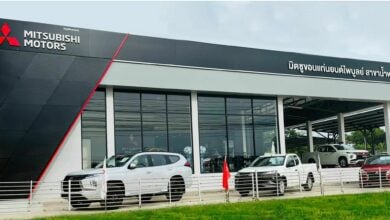10 essential questions to ask before buying a car in Thailand

Embarking on the endeavour to purchase a vehicle in Thailand presents both exhilarating opportunities and formidable challenges, particularly for those who are unacquainted with the local market and its distinctive characteristics. Whether one is an expatriate residing in Thailand or a native entering the dealership for the initial time, possessing knowledge of pertinent inquiries can significantly mitigate complications and facilitate an informed decision-making process for buying a car. This guide is designed meticulously to assist you in navigating this procedure with ease, equipping you with critical questions that necessitate consideration before finalizing your agreement.
Comprehending the legal frameworks and procedures implicated in acquiring a vehicle within Thailand is paramount. It is indeed feasible for foreigners to procure vehicles; however, there are specific stipulations and legal prerequisites that require attention. Engaging with local regulatory bodies to select an appropriate dealership, each phase contributes indispensably towards ensuring a fruitful transaction. The objective of this article is to illuminate these vital aspects, aspiring to render your car purchasing experience as seamless and gratifying as possible.
Furthermore, with the emergence of online marketplaces and dealerships, identifying your ideal vehicle has been simplified considerably. Nonetheless, the convenience offered by digital browsing introduces additional considerations concerning the final arrangement, documentation processes, and verification of the vehicle’s condition. By concentrating on essential inquiries before completing your acquisition, you will be better positioned to identify a vehicle that not only fulfils your requirements but also secures optimal value and assurance. Let us explore the indispensable questions that will aid in facilitating your forthcoming car purchase in Thailand.
Essential considerations for car purchase in Thailand

Legal requirements for foreign buyers
When considering buying a vehicle in Thailand, it’s critical to understand the legal requirements involved. International buyers are subject to specific regulations that might not apply to residents. Initially, it is essential to possess a valid visa—this could be either a non-immigrant visa or a resident visa—since tourist visas may not meet the requirements for acquiring a vehicle. Additionally, a legitimate driving license is required, which can be either from one’s home country accompanied by an international driving permit or a Thai driving license.
Documentation is key. Prepare your passport, visa details, and a certificate of residence from either the Immigration Bureau or your embassy. This certificate proves your address in Thailand and is often necessary when registering your vehicle. Furthermore, some dealerships may require a Thai bank account for financing options, making it important to set this up in advance. Remember, each of these steps lays the foundation for a smooth purchase process.
Evaluating your budget and financing options
Before you dive into the market, it’s super important to take a good look at your budget. Knowing what you can afford helps make smart choices and determine which models are within your reach. Remember, it’s not just about the price tag – insurance, taxes, and keeping your new purchase in tip-top shape can add up too.
Financing options are available but vary greatly. Dealers often offer their financing schemes, which might be convenient but not always the most competitive. Banks and financial institutions in Thailand offer car loans, but eligibility and terms differ widely. Interest rates, down payment requirements, and loan tenures can impact your monthly expenses significantly, so compare these carefully.
Should you contemplate financing options via a dealership or banking institution, requesting comprehensive details concerning the terms is advisable. This includes inquiries about interest rates, the duration of repayment, and potential penalties for early settlement. These queries are included in the “10 questions to ask before purchasing a vehicle in Thailand,” serving to mitigate unforeseen complications subsequently.
Moreover, some manufacturers have special offers for foreigners, including discounted rates or promotional packages. It’s worth exploring these deals as they might provide better value than standard financing options. Purchasing a vehicle in Thailand necessitates meticulous attention to legal documentation for foreign purchasers and a comprehensive understanding of financing alternatives. By meticulously addressing these aspects, individuals will traverse the buying process with increased confidence, ensuring that the experience of acquiring a vehicle in Thailand is both enjoyable and devoid of complications.
Key questions for a smooth car buying experience

When embarking on the journey to buy a car in Thailand, gearing up with the right questions ensures a transparent and satisfactory purchase. This guide, tailored for those looking to buy a car in Thailand, distils down the critical inquiries you should make before sealing the deal.
1. What is the full cost of the car?
Kindly ensure to request the comprehensive cost of the vehicle, which includes the base price, taxes, registration fees, and any ancillary charges. Obtaining this data beforehand assists in financial planning and helps prevent unforeseen expenses.
2. Can I see the car’s maintenance history?
Maintenance records reveal the car’s upkeep history, showcasing regular servicing and repairs. Examining these documents helps assess the vehicle’s condition and potential future maintenance needs.
3. What are the warranty and maintenance coverage details?
Understanding the warranty scope and what maintenance services are covered is essential. It’s vital to know the duration of the warranty and whether it includes parts and labour.
4. What safety features does the car offer?
Safety should never be compromised. Inquire about the car’s safety features, such as airbags, anti-lock braking systems (ABS), and electronic stability control (ESC). Modern safety technologies can be lifesaving.
5. Are there any known issues or previous accidents?
Ask directly about any issues or accidents the car has been involved in. An honest seller will disclose this information, which is crucial for your decision-making.
6. What is the vehicle’s mileage and age?
The car’s mileage and age provide insight into its wear and tear. Lower mileage often suggests less wear, but it’s also important to consider how age might have affected the vehicle.
7. Can I take the car for a test drive?
A test drive is the best way to gauge the car’s performance and comfort. It also allows you to detect any issues with the engine, brakes, and transmission firsthand.
8. What additional fees should I anticipate?
Ask about any extra fees, including processing or administration fees, that could be added to the price. Transparent discussions about fees ensure there are no surprises later on.
9. Is there room for price negotiation or promotions?
Negotiating the price or asking about current promotions could result in significant savings. Don’t hesitate to negotiate or inquire about special deals for an advantageous purchase.
10. What are the conditions for insurance and registration?
Understanding the insurance coverage options and registration process is a must. Knowing the types of insurance available and the registration steps simplifies the post-purchase phase, ensuring you’re well-prepared to hit the road legally and safely.
By asking these 10 critical questions before you buy a car in Thailand, you’ll be well-informed and ready to make a savvy decision. This preparation enhances your buying experience and ensures you drive away with a great deal suited perfectly to your needs.
After-sales matters: Ownership and maintenance
Equipping oneself with pertinent inquiries before purchasing a vehicle in Thailand constitutes the initial phase toward a fruitful acquisition. However, it is imperative to recognize that the process does not conclude upon locating the perfect automobile. Comprehending the landscape of after-sales service, inclusive of procedures for transferring ownership and obligations related to maintenance, is essential.
It is imperative to recognize that acquiring a vehicle transcends a mere financial exchange—it signifies an investment in personal autonomy, facilitating travel at will. To ensure this investment yields optimal outcomes, it is prudent to remain knowledgeable and proactive regarding all aspects of vehicle ownership in Thailand.
Thailand is at the forefront of automotive innovation, embracing blockchain technology to enhance transparency, security, and efficiency in vehicle transactions and supply chain management. This cutting-edge approach positions Thailand as a leader in the digital transformation of the automotive sector, driving advancements and setting new industry standards.

































